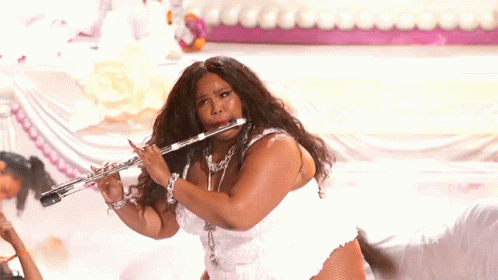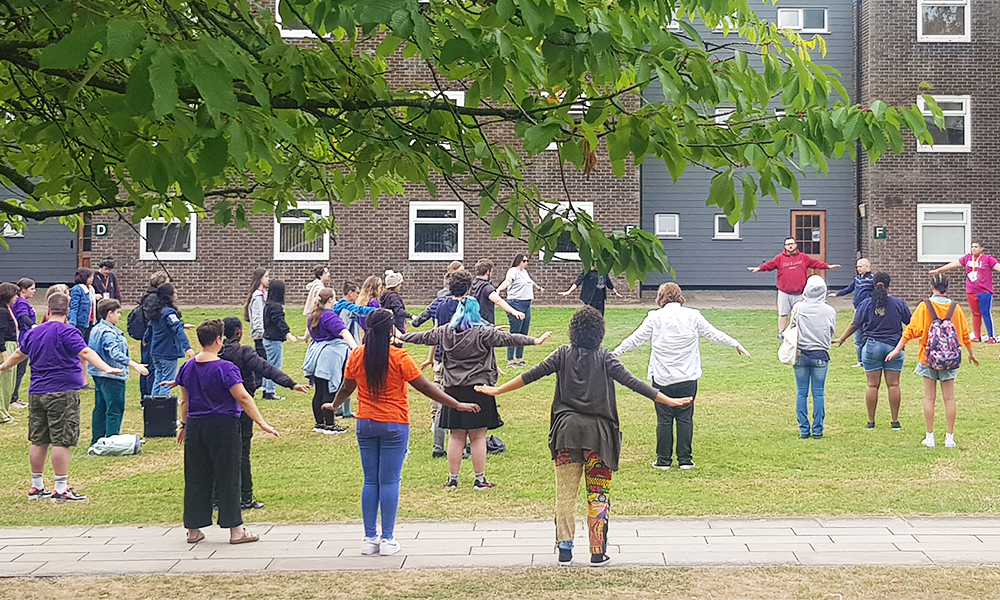Helping the next generation to flourish…
At Orchestras for All (OFA), we recognise the importance of supporting young people’s mental health. That’s why our life-changing musical programmes aim to provide a safe and inclusive environment where young people can grow in confidence, develop resilience and express themselves creatively.
At all our charity’s events, we have a dedicated Head of Wellbeing and Wellbeing tutors to further our ongoing commitment and evolving approach to wellbeing. Through this approach, we aim to equip young people with the tools they need to navigate life’s challenges, enabling them to thrive and be the best version of themselves.
To mark Children’s Mental Health Week this year, we’re taking a moment to share why supporting young people is so crucial in our ever-changing world and a few ways this can be encouraged.
Read more: 7 powerful benefits of inclusive music education >
Why is supporting young people’s mental health so important?
Modulo musicians enjoying a break from rehearsals
In the UK, the number of young people experiencing mental health problems is at an all-time high. With one in five children and young people aged 8-25 struggling with mental health difficulties and particularly following the effects of the pandemic, it has never been more important for us to take action.
Taking a proactive approach to mental health early on can prevent other challenges from arising later in life. At OFA, we strive to support young people’s wellbeing from the very moment we start working together, helping them to develop healthy coping mechanisms, build self-esteem, enhance their emotional intelligence and set themselves up for a brighter future.
Plus, providing the right support doesn’t just benefit young people – it can also help society to become healthier and more empathetic as a whole.
Read more: 11 ways playing music with others can boost your wellbeing >
The impact of social media on mental health
It’s no secret that social media can be a fantastic tool for expressing ourselves creatively, connecting with likeminded groups of people and driving positive change.
However, a recent study from Yale Medicine found that children and teenagers who spend more than three hours a day on social media are at twice the risk of experiencing anxiety, depression and issues with self-esteem.
Last summer, a participant from our Modulo Programme told us: “The modern pressures we experience are definitely coming from social media. Although it can help a lot, there’s a bad side that comes with it.”
Taking place this year on 11 February 2025, Safer Internet Day is dedicated to highlighting how we can tackle the problem collectively, providing young people with safe methods of protecting themselves from online scams and sharing where they can seek support, should they need it.
Read more: 13 ways you can be kind to others in an inclusive youth orchestra >
How can you support young people’s mental health?
National Orchestra for All Ambassadors Tashan (left) and Haseeb (right) with percussionist Isaac (middle)
Keen to help but don’t know where to start? Here are a few top tips to get you started:
Encourage open communication: Creating a safe space where young people feel comfortable expressing their feelings without judgment is vital. Active listening and validating their emotions helps to build trust and resilience.
Support creativity and self-expression: Engaging in creative activities, such as music, art and writing, provides young people with a constructive outlet for their emotions. At Orchestras for All, we see firsthand how music positively impacts young people, boosting their confidence and emotional wellbeing.
Promote a balanced lifestyle: Encouraging a balanced lifestyle that includes exercise, restful sleep and time away from screens supports overall mental and emotional health.
Know where to find help: There are lots of organisations that can provide support for young people experiencing mental health difficulties – you can find helpful resources on our wellbeing page.
At Orchestras for All, we remain committed to nurturing the wellbeing of everyone we work with, whether that’s the inspiring young people who participate in our programmes or the caring staff that help make them happen.
If we work together to create safe and supportive environments, we can empower young people to navigate life’s challenges with confidence and give them the chance to thrive.
Have you been affected by the topic of this blog or are you currently experiencing mental health struggles? Please head to our wellbeing page for information about where you can receive the right support:

























